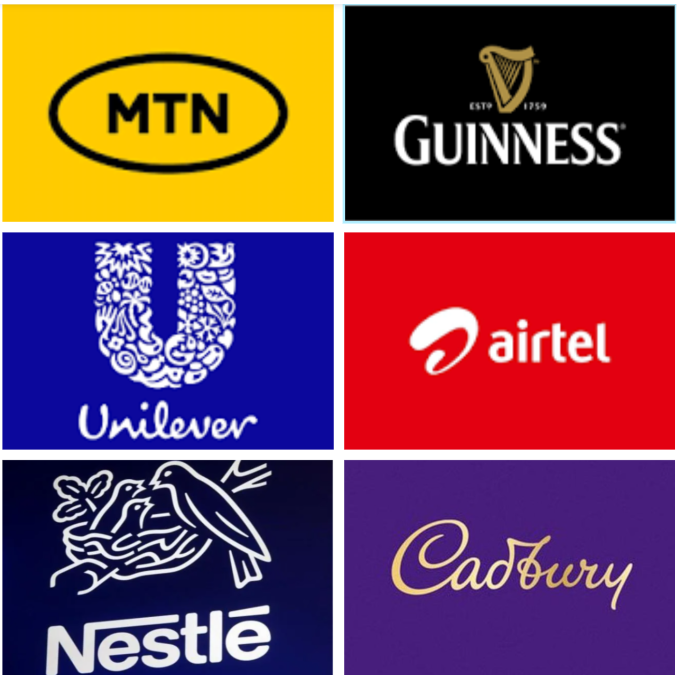By Felicia Nwosu
As the war between Naira and foreign exchange, especially the United States Dollar, continues to intensify, the bottom lines and equities of major multinationals in Nigeria have been on the downward curve across every sector. In their search for survival, the difference in measure of value of currencies has also left most of the big players counting immeasurable losses in their first and second quarters of this year.
Despite various measures adopted by these global brands in the name of survival instincts such as shrink-inflation and drink-inflation to mitigate the economic downturn, there seems to be a recurring decimal, leading companies to post huge losses on the Nigerian Exchange website, driven largely by a foreign exchange loss.
Also, the impact of the apex bank’s effort at curtailing the adverse effect of the forex by floating the naira at the investors’ and exporters’ window has made the situation even more uncertain.
In this report, MARKETING EDGE takes a look at some of the financial results released by the leading companies and the impact of the foreign exchange hike on their reports so far.
Guinness Nigeria
Recently, Guinness Nigeria Plc declared a N18.17bn loss in its FY 2023 as loss after tax N18.1 billion -216.1%. Nigerian Breweries Plc declared a net foreign exchange loss of N70.6 billion in the second quarter (Q2). It also created a net loss of almost N37 billion for Q2 and extended the company’s loss position to N47.6 billion at half-year. FX loss multiplied 13 times from N5.4 billion in the same quarter last year to swell an exchange loss of N14.5 billion in the first quarter (Q1) to over N85 billion at half year.
Nestle Nigeria
Nestle Nigeria Plc, was not spared in the forex crunch hit in its financial statement of its second quarter. The global FMCG firm experienced a significant pre-tax loss of N86.5 billion for the period ending June 30, 2023. This loss not only impacted the company’s Q2 results but also led to the erasure of its Q1 profits, resulting in a disappointing half-year performance, with profits plummeting to N61.6 billion.
The company said the major factor contributing its losses was a staggering forex loss of N123.7 billion, which significantly impacted its overall profitability.
The company said the major factor contributing its losses was a staggering forex loss of N123.7 billion, which significantly impacted its overall profitability.
Cadbury Nigeria
Cadbury Nigeria Plc, on its part reported a 721 per cent loss, amounting to N14.5bn in the first half of 2023, compared to the same period in 2022. Meanwhile, the company reported N2.341bn as profit in the first half of 2022. Its revenue for the first half of 2023, however, increased by 28 per cent to N35.607bn from N27.876bn for the same period in 2022. Impacting the revenue was the cost of sales which rose from N22bn as of June 2022 to N 25.378bn in June 2023.
MTN
MTN Nigeria released its Q2 2023 results, revealing a concerning 64% year-on-year drop in also attributing it to the same factor. Its pre-tax profits amounted to N44.6 billion. This significant decline in profits took its half-year earnings to N200.3 billion compared to N268.6 billion in the same period last year. MTN also suffered from a foreign exchange loss of N131.4 billion, which significantly impacted its overall profitability.
The network provider said the surge in finance costs was a major concern, soaring by 259% YoY to N182 billion. The company’s total debts also witnessed a significant increase, reaching N855 billion compared to N689.6 billion in December 2022, while net assets declined to N258.2 billion from N355.6 billion in December 2022. Working capital also stood at a deficit of -N588.7 billion.
Airtel
The telecom firm disclosed that this quarter saw the announcement of the change to the FX market in Nigeria which resulted in significant naira devaluation. It therefore revealed that it lost $151m due to the harmonisation of foreign exchange rates in Nigeria.
Airtel said, “Profit after tax was negative ($151m), driven largely by a foreign exchange loss of $471m recorded in finance cost before tax and $317m after tax, because of the devaluation of the Nigerian naira in the month of June 2023. This impact has been classified as a non- operating exceptional item.”
Unilever
Unilever was also caught with the loss bug when it stated that its revaluation loss was caused by foreign currency-denominated balances related to trade loans. Recall that Unilever’s goods firms rose to N14.36 billion from N1.06 billion, while restructuring costs increased to N2.36 billion from N0.48 billion in the first half of 2022.







Comment
No comments found.